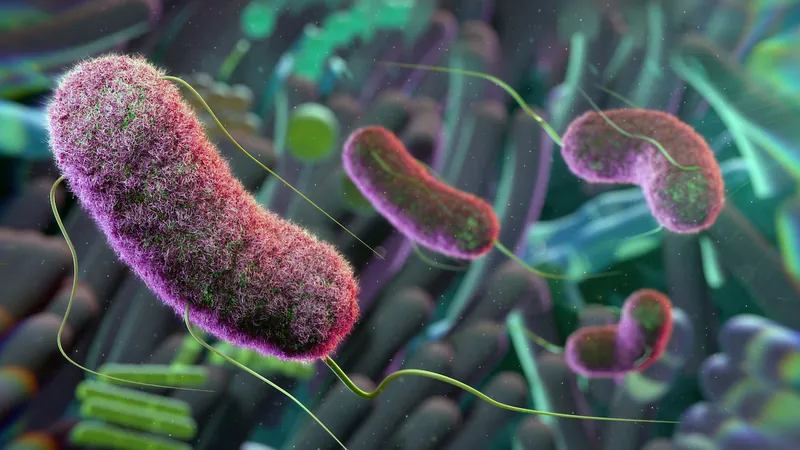
Newly Discovered Bacterium Found to Weaken Gut Immunity – What This Means for Your Health!
2024-09-26
Groundbreaking Discovery of *Tomasiella immunophila*
In a groundbreaking study conducted by researchers at the Cleveland Clinic, a new bacterium dubbed *Tomasiella immunophila* (T. immunophila) has been discovered, revealing its insidious role in compromising the immune system within the gut. This pivotal finding could open doors to innovative treatments for several challenging inflammatory and infectious diseases, such as inflammatory bowel disease (IBD), Crohn’s disease, and ulcerative colitis.
The Role of *T. immunophila* in Gut Immunity
Published in the prestigious journal Science, the research highlighted how *T. immunophila* disrupts a vital component of the gut's protective immune barrier—a crucial system in safeguarding our health. The study was led by notable experts, Dr. Thaddeus Stappenbeck and Dr. Qiuhe Lu, who emphasized the bacterium's significant impact on reducing levels of secretory immunoglobulin A (SIgA), a key antibody that acts as a frontline defense on mucosal surfaces.
Insights from the Researchers
In an insightful statement, Stappenbeck noted, "This research underscores the essential role that specific gut microbiome components play in overall health and disease prevention. By pinpointing this specific bacterium, we’ve not only advanced our understanding of gut-related ailments but also potentially unlocked a pathway for developing important therapies."
Implications of Reduced SIgA Levels
The implications of reduced SIgA levels are far-reaching. SIgA works tirelessly in the gut, binding to harmful microbes and preventing them from infiltrating and damaging body tissues. Interestingly, earlier research has indicated that certain harmful intestinal bacteria can lead to a decrease in SIgA, increasing the vulnerability to infections and exacerbating inflammation.
Concerns over *T. immunophila*
The presence of *T. immunophila* in the gut is particularly concerning, as this bacterium has shown to lower the body's defenses against pathogens and hinder the repair processes of the gut's protective barrier. This highlights why some individuals may experience inexplicably low SIgA levels in the gut while maintaining normal levels in their bloodstream—a phenomenon elaborated upon by Dr. Michael Silverman from Children's Hospital of Philadelphia, who praised the study’s illuminating findings.
The Importance of SIgA
"This discovery is critical," he stated, "as SIgA in the intestine serves as a vital barrier against the vast number of microbes residing in our gut. This research illuminates a new path for developing therapeutics aimed at manipulating SIgA levels and improving overall gastrointestinal health."
Future Directions in Research
As the research progresses, experts like Dr. Lu are optimistic. "We’ve identified a significant number of patients at risk due to this defect, and our work focuses on understanding how gut microbes like *T. immunophila* contribute to this issue. We believe therapeutic options can emerge from this knowledge to tackle a variety of inflammatory and infectious diseases that afflict many people worldwide."
Conclusion and Hope for the Future
This monumental discovery stands as a beacon of hope for researchers and healthcare providers, offering the possibility of tailored treatments that could significantly enhance the quality of life for millions suffering from chronic gut-related conditions. Keep an eye on further developments in this promising research area—it may just change the way we approach gut health forever!



 Brasil (PT)
Brasil (PT)
 Canada (EN)
Canada (EN)
 Chile (ES)
Chile (ES)
 España (ES)
España (ES)
 France (FR)
France (FR)
 Hong Kong (EN)
Hong Kong (EN)
 Italia (IT)
Italia (IT)
 日本 (JA)
日本 (JA)
 Magyarország (HU)
Magyarország (HU)
 Norge (NO)
Norge (NO)
 Polska (PL)
Polska (PL)
 Schweiz (DE)
Schweiz (DE)
 Singapore (EN)
Singapore (EN)
 Sverige (SV)
Sverige (SV)
 Suomi (FI)
Suomi (FI)
 Türkiye (TR)
Türkiye (TR)